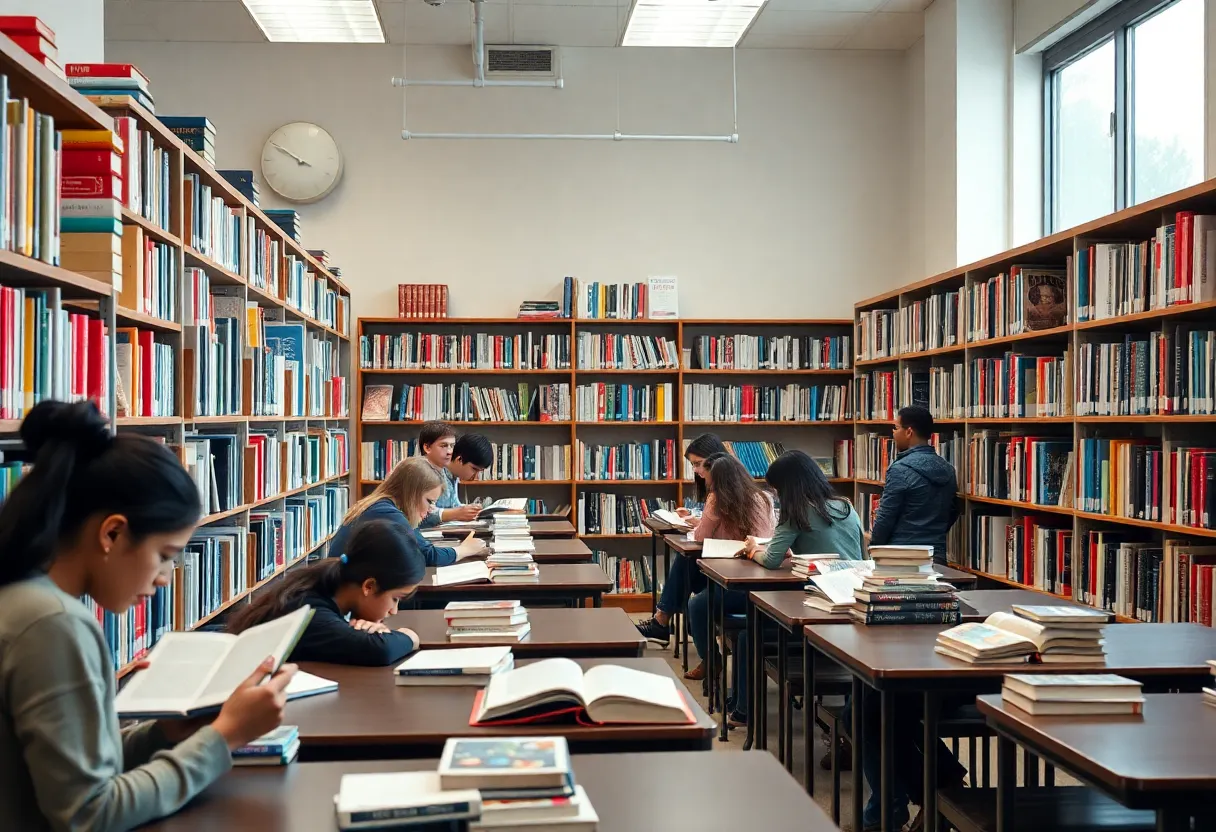News Summary
A controversy has erupted at Georgetown High School over a directive to remove over 150 books classified as ‘Adult’ by the district. The beloved librarian, Susan Cooper, defies the order, citing First Amendment rights and the importance of diverse reading materials. The decision has sparked heated debates about censorship and the appropriateness of youth literature, while legal uncertainties add to the complexity of the situation. As the community grapples with the implications of these actions, the future of the library and its collection hangs in the balance.
Georgetown Faces Book Removal Controversy at High School
In the vibrant city of Georgetown, a significant controversy is brewing at the local high school, centering around its beloved librarian, Susan Cooper. With nearly seven years dedicated to fostering a love of reading among students, Cooper is now facing potential termination after she bravely opted to keep over 150 books in the library that have been classified as “Adult” by the district’s library director.
The Removal Directive
The spotlight shines on a recent directive issued by the Georgetown district, which ordered the removal of books deemed to contain “Mature” themes. This decision follows a mandate established in January that requires the removal of all titles categorized as “Adult” based on assessments by a vendor. The only exceptions appear to be classic works featured in past Advanced Placement English Literature exams, which were spared from this sweeping removal order.
Cooper’s Stand Against Censorship
Susan Cooper firmly believes that the directive infringes on students’ First Amendment rights and challenges the school board’s reconsideration policy. Her stance is clear: she views the book removal as a straightforward “book ban” and has stated her intention not to comply. Cooper continues to allow students access to the books slated for removal, despite warnings from the school principal, Brian Johnson, advising her to adhere to the directives. This situation has certainly set off a chain of events that has left many wondering about the future of the library’s collection.
A Closer Look at the Impact
Among the notable titles facing removal are award-winning books such as “Station Eleven”, “Shuggie Bain”, and “The Testaments”. Popular series like “Court of Thorns and Roses” and various works by acclaimed author Colleen Hoover have also made the list. The district’s removal action encompasses an astonishing 97 unique titles, amounting to 151 physical copies that many students have actively checked out. This has raised eyebrows and prompted discussions about how these selections were made and their implications for students seeking diverse reading materials.
Support and Criticism
Georgetown school board President, James Scherer, supports the efforts to remove these books, emphasizing a commitment to providing age-appropriate resources to students. However, the vendor responsible for classifying these books, Follett, has come under fire for its lack of a clear explanation regarding its rating criteria. Cooper contests this reliance on vendor assessments, pointing out cases where classic literature has been unfairly categorized and calls into question the effectiveness of these standards in representing “appropriate reading”.
Legal Ramifications and Uncertainties
The situation grows even more complex with the involvement of legislation. A recent federal district court ruling temporarily blocked key aspects of Texas House Bill 900, including the controversial book rating requirement. This legal backdrop deserves attention as it has the potential to influence how school districts approach the selection and removal of library materials.
The Road Ahead
Cooper’s future feels uncertain as she navigates this turbulent landscape. With warnings from principal Johnson about possible termination due to her actions, the librarian has raised concerns about the potential for retaliation against her for speaking out against these restrictive measures at a school board meeting. As parents and school board members prepare for future legislative changes, such as Senate Bill 13, which may grant increased authority regarding library materials, the dialogue around appropriate educational content continues.
With policy adaptations and potential reviews looming, both the community and the school are left reflecting on the importance of open dialogue and the impact of literature on young minds. As the situation unfolds, the voices in Georgetown wonder, how does one balance the desire to protect students with the necessity of nurturing their freedom to read and explore diverse perspectives?
Deeper Dive: News & Info About This Topic
HERE Resources
Homeland Security Secretary Kristi Noem Faces Backlash for Luxurious Watch
Judge Approves Conditional Release for Morgan Geyser
Meta Platforms Considers Moving Legal Base to Texas
Minnesota Legislative Session Opens Amid Controversy
Philadelphia Sparks Debate Over NL MVP Honors Amid Castellanos’ Support for Iglesias
Season Two of Showtrial Debuts Amid Controversial Factual Misstep
Additional Resources
- Statesman: Georgetown High School Librarian Faces Book Ban
- Georgetown Voice: The Fear of Coming-of-Age Novels
- KALB: Cenla Votes Reminders for Election
- Google Search: Book Removal Controversy in Schools
- Wikipedia: Censorship






